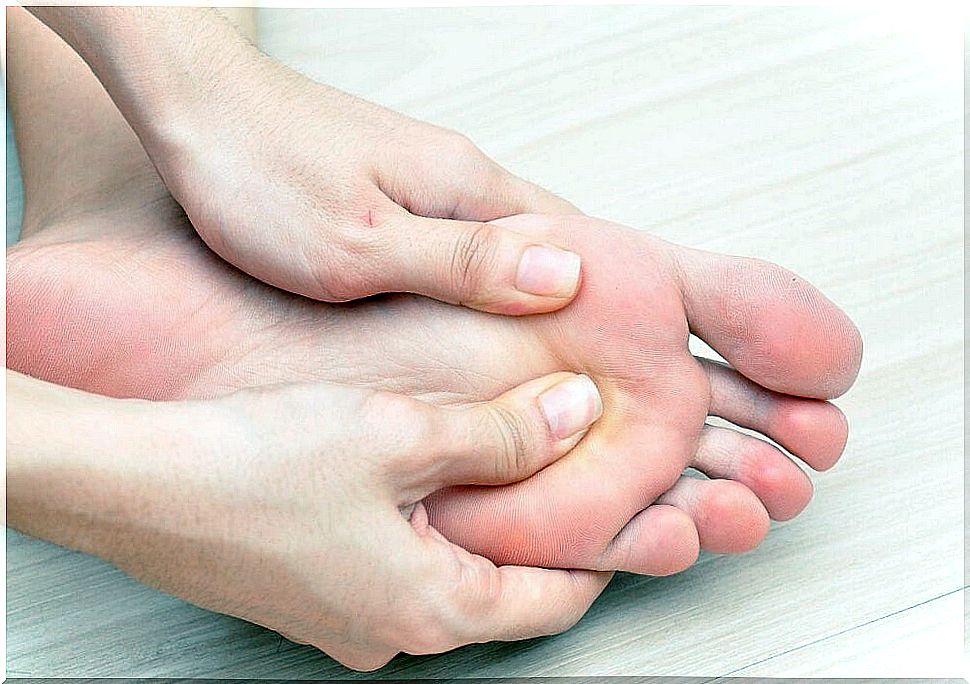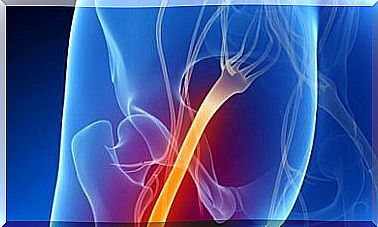10 Early Warning Signs For Diabetes That Everyone Should Know
Before diabetes appears as a full clinical picture, the disorder is usually announced by isolated symptoms. It is important to be able to recognize these. Only then is an early diagnosis and appropriate therapy possible.

Diabetes is one of those diseases that often goes on in silence for years. Early warning signs of diabetes are often overlooked.
This disease is caused by an excess of glucose in the blood. This cannot be counteracted, either because the body produces insufficient insulin or because there is resistance to it.
Symptoms develop over time, and diabetes is often mistaken for other common diseases.
This is especially serious because, at an advanced stage, diabetes can affect the functioning of vital organs such as the kidneys, heart, and brain.
This is another reason why it is very important to take the early warning signs of diabetes seriously, even if they seem harmless at first.
In the following we would like to introduce 10 of these symptoms.
1. Exhaustion

Too little insulin or insulin resistance can prevent the body’s cells from absorbing enough glucose. However, this is essential to supply the entire organism with energy.
The insulin disorder often leads to severe mental and physical exhaustion. Even if the patient rests sufficiently, the exhaustion increases.
However, factors such as overweight and obesity, dehydration or blood pressure disorders are also often behind this symptom.
2. Insomnia
Out-of-control blood sugar levels are also linked to insomnia and decreased fatigue. People with type 2 diabetes often have difficulty falling asleep.
It is important to know that the more likely you are to develop diabetes if you sleep an average of less than 6 hours a night.
3. Dry mouth and thirst

Glucose is one of the most important “fuels” in our body. However, if not used appropriately, it can become the main cause of dehydration.
This has a negative effect on all cells and at the same time limits the production of saliva, which in turn can lead to a dry mouth and thirst.
4. Frequent urination
Too much glucose in the blood forces the kidneys to do a double job to get rid of it. Overloading leads to an increased need to urinate.
Glucose interferes with the correct elimination of toxins and can lead to disorders in the urinary system.
5. Cystitis

Another typical symptom of diabetes is persistent and recurring cystitis. These occur because the increased blood sugar level weakens the immune system.
The formation of antibodies is reduced and the organism is exposed to viruses, bacteria and fungi almost defenseless.
6. Slow wound healing
Wounds or skin ulcers that are slow to heal or do not heal at all are signs of high blood sugar levels.
Diabetics should be careful, as these injuries can lead to medical complications unobserved.
7. Problems with your feet as an early warning sign of diabetes

Early warning signs of diabetes can also be seen on the feet. The first thing that occurs here is circulatory disorders and fluid retention.
Sometimes, if the diabetes progresses untreated, nerve endings in the feet become damaged, which can manifest as numbness or itching.
8. Blurred vision
The dehydration of the body from having too much glucose in the blood can cause problems with the eyes.
Insufficient fluid in the eye affects the lens and its ability to focus, which can lead to blurred vision.
9. Cravings

If glucose is not optimally processed in the cells, the amount of “fuel” that sets all organ functions in motion is reduced.
This situation leads to confusion in the organism, which sends out signals asking for more energy through eating.
So unless the build-up of sugar in the body is controlled, it is inevitable that food cravings will occur.
10. Dry skin
The condition of the skin can also be used to determine whether there is a possible risk of diabetes. Affected patients experience a certain degree of dryness, which is related to circulatory problems and the associated loss of water.
Of course you have to watch this carefully, as this symptom also occurs in many other diseases.
Do any of the symptoms described sound familiar to you? Do you belong to one of the risk groups for diabetes? Before the advanced stage of the disease surprises you, it is better to see a doctor you trust and thus increase the chance of early diagnosis and treatment.









